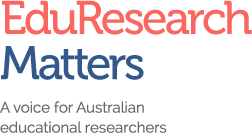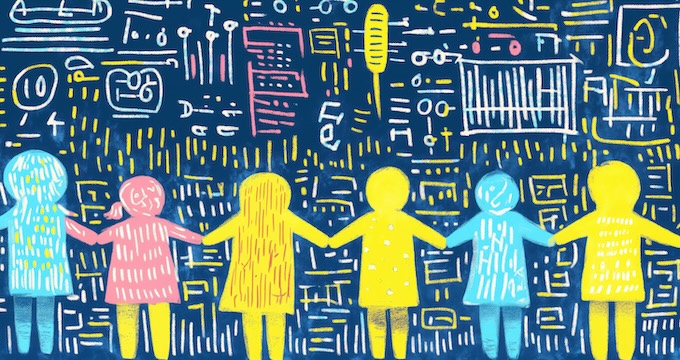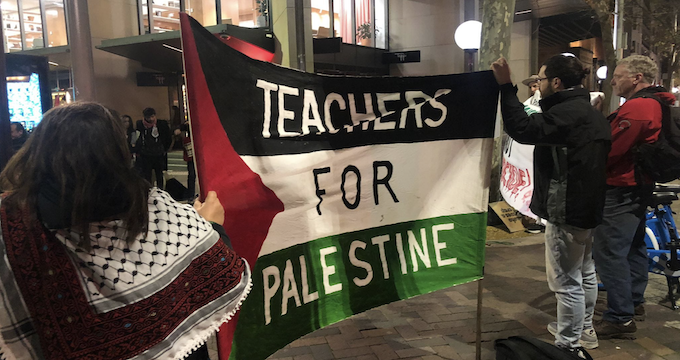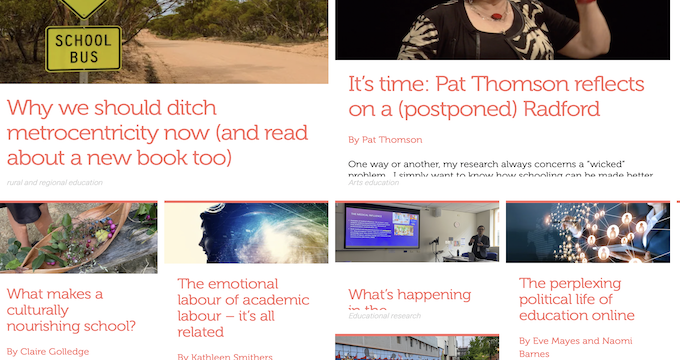A major driver of inequality in contemporary education systems internationally is the segregation of students from different social backgrounds into separate schools. Australian education separates students from different backgrounds to a greater extent than many other countries. Research we will present at the forthcoming AARE Conference reveals competition between unequally resourced schools makes many parents feel they must choose an alternative to their local school. Although a major contributor to this separation is the existence of a large fee-paying private school sector that is over-resourced through public subsidies, there are also major divisions within public education. We note in particular the rise of specialist curriculum programs in otherwise comprehensive public secondary schools. These present major risks to equity.
More inequality: The new selectivity in public schooling
There are over 366 specialist curriculum programs in otherwise comprehensive public secondary schools in Australia. Each has its own admission criteria. Specialist or special interest programs are educational initiatives that focus on specific subject areas, such as sports, language, arts and STEM, delivered through dedicated classes and providing advanced learning and enrichment opportunities not available to other students.
One avenue for improving equity in education is to support the broadening of curriculum options and programs that can appeal to a diverse range of students and interests and strengthen demand for public education. However, when specialist programs are used by schools to cherry-pick students rather than prioritising the needs of local communities, this generates new problems. Instead of broadening options, this use of specialist programs creates a new hierarchy that further segregates students between and within schools. Some parents have more time, resources and knowledge than others to compete for places for their children in select-entry specialist programs.
A two-speed public system
The reality of high-demand public schools in middle-class neighbourhoods is in stark contrast to that of schools without capacity constraints and located in working-class neighbourhoods. Public schools with established reputations often leverage high demand to grant selective access to those who live beyond their enrolment zone, with specialist and accelerated learning programs providing mechanisms to do so. Those who travel from further afield are also more likely to be middle-class and high-achieving. The ‘choice’ to attend high-demand schools is also available to those who are able to buy or rent within the zone specifically for the purpose of gaining access to a desired school.
Schools face threats to enrolment numbers from private schools. To combat that, public schools make use of specialist programs to shore-up local demand and to build student engagement. In working-class neighbourhoods, vocational and alternative curriculum offerings are particularly popular. Under such conditions, specialist programs do not present such a threat to the model of comprehensive public schooling where education is viewed as an entitlement. In Victoria, where close to one in two students enrol in a government school outside their catchment area, the Education Department has made clear its attachment to this local comprehensive model. That prevents schools from using curriculum grounds to enrol students from beyond their catchment zones.
Learning from the past on the drivers of inequality
For specialist programs to broaden appeal rather than contribute to segregation, it is important to learn from the mistakes of the past. The first lesson is that demand for, and success at, gaining access to selective schools is extremely uneven. Greater efforts are needed to ensure that access to specialist programs is democratic and inclusive so that all benefit. Fees should not be charged for entrance examinations, and enrolment procedures need to be carefully re-examined. The efforts made by many universities to improve equity in access can serve as an example here. That includes the move away from examination results as measures of student potential.
The second lesson is that competition between schools does not necessarily increase innovation and diversity in curriculum offerings for all. Competition drives schools to attract students who will perform highest on traditional measures and are least taxing on scarce resources. That increases inequality.
Many public school principals are keen to retain high-achieving students and to appeal to middle-class families. Instead, schools should be encouraged to collaborate with each other. That includes the provision of specialist programs at local schools. For example, including participating in programs beyond the school in which they are enrolled. Further, interest in specialist programs should be used to drive offerings available to all students, with no access barriers.
Looking forward towards genuine choice in education
For families and students, availability of specialist curriculum programs across diverse curriculum areas, including sports and vocational courses, is appealing. They demonstrate that public education is doing more than providing a bare minimum, as some parents perceive it to be.
We need to be vigilant against the re-emergence of streaming and academic selectivity as a defining characteristic of public education and a byproduct of the existence of specialist programs. In much of the country, streaming and separate high and technical schools were abandoned in the 1970s and 1980s, as Year 12 completion through a common qualification became the default setting in all jurisdictions.
What’s the best way forward? Reduce market pressure in a system with a large private sector pushing public schools to reintroduce forms of internal differentiation. More equitable resourcing would be a good starting point.
The broadening of curriculum options and choice to appeal to students from all backgrounds is to be welcomed. There is a role for specialist programs and for vocational learning in engaging students who struggle with or are less interested in some traditional curriculum options. Transforming traditional areas, such as STEM and humanities, is also worthwhile and school-level innovation can contribute in important ways to improving the quality of social and learning experiences at school. The proviso is that such benefits must be broadly available, rather than placed within discretionary selection procedures and fee-charging testing regimes.
Not the only division
Public versus private is not the only division in Australian schooling. But it is one that ends up distorting public schooling through the pressure to attract particular types of students, keeping out others. The big losers are working-class schools and students. They are located in sites that are by-passed by peers being driven to high-demand middle-class schools. Ultimately students, families and societies lose in a system that divides students, rather than bringing them together.
We need policies that broaden options without re-creating the hierarchies of a by-gone era.

Left to right: Joel Windle is associate professor of education at UniSA. He researches educational inequalities and curriculum differentiation in Australia and Brazil. Laura Perry is a professor of education at Murdoch University. She is a specialist in comparative research on educational marketisation and equity.
Quentin Maire is a senior research fellow in the Faculty of Education at the University of Melbourne. His research focuses on social inequalities in school systems internationally.












